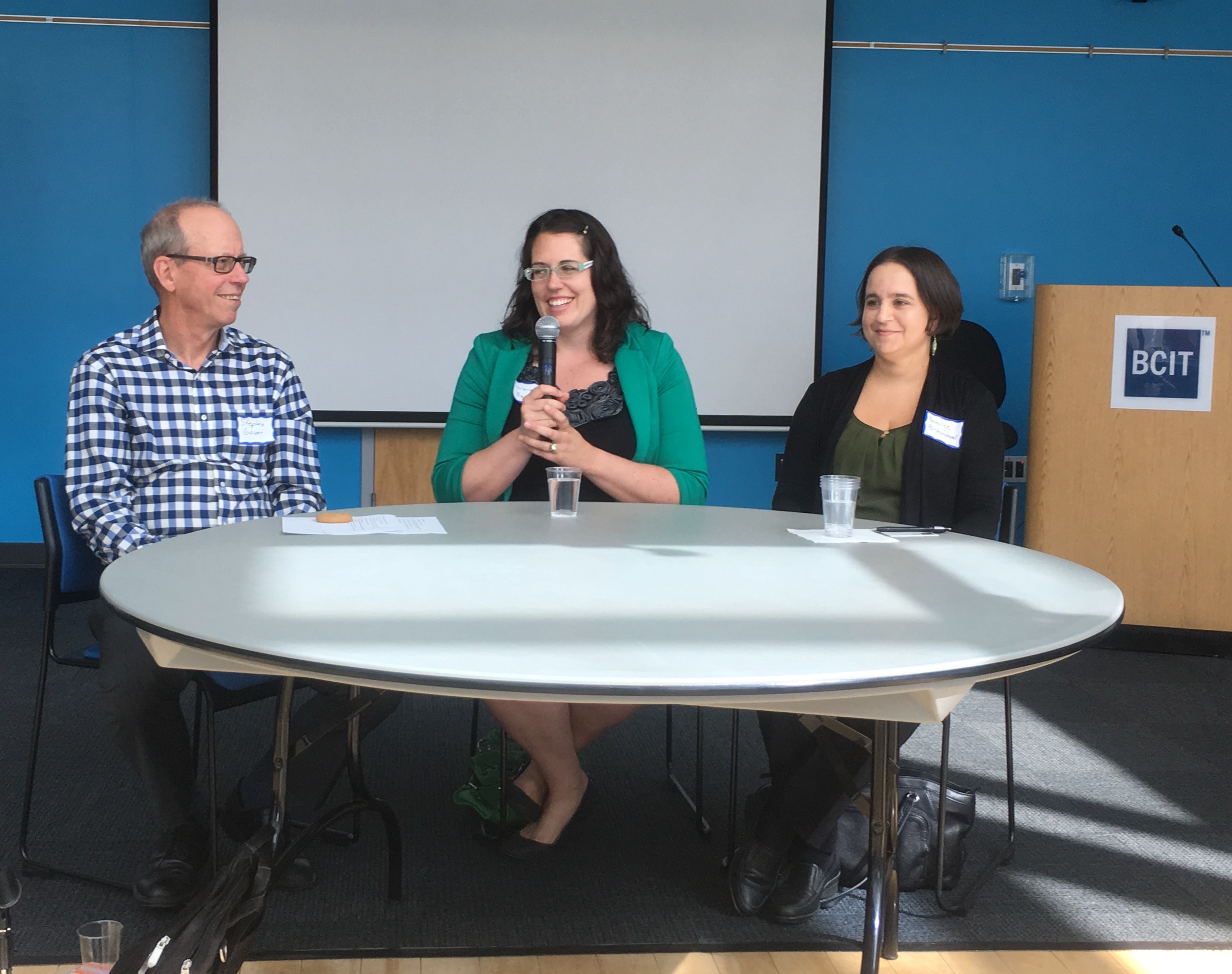The 2017 BCIT Technical Writing Alumni Lunch, which was held on September 16th, started with a panel discussion on Communication for a Complex World. The panel featured three STC Canada West Coast chapter executive members: Serena Beck (chapter president), Stephen Gauer (chapter past president), and Beverlee Bishundayal (chapter secretary/treasurer). There were 35 attendees, including students, alumni, and STC members.
Stephen began by giving examples of the increasing complexity of the world in general, and how this makes our task as technical communicators more complex. During the panel discussion, the panelists explained how they deal with different types of complexity in their jobs.
Multitasking as a solo writer: As the only technical writer in her company, Beverlee has to juggle a lot of administrative duties along with her writing job. She has some techniques that help her stay organized:
- using Outlook reminders and alerts
- completing shorter, simpler tasks first so she can dedicate larger chunks of time to the bigger, more complicated tasks
- creating and using templates for tasks she does often
- teaching best writing practices to the rest of her team
Virtual teams: Serena works on a virtual team, living in Victoria while working out of the Edmonton office of her company. The challenges her team encountered included:
- getting signatures from various approvers (they now use digital signatures)
- using soft phones with technology that was not always reliable at first
- dealing with different time zones
- communicating with fellow team members (they use Skype for instant messaging, phone calls, and presenting and sharing desktops)
- building team cohesion (they have weekly virtual coffee chats with no work talk allowed)
General team work: Beverlee’s team has successfully used the Myers-Briggs Type Indicator personality inventory to help them understand each other’s communication styles, work together more effectively, and make better decisions about who would be suited for various tasks.
Translation for a global audience: Much of what Serena writes at work is translated into several different languages. Serena offered some tips for writing for translation:
- Write clearly and minimally (The Global English Style Guide by John R. Kohl is a great resource).
- Make attention, caution, and warning statements as simple and clear as possible, while also containing all the necessary information.
- Maintain consistency in terminology and sentence structure throughout the documentation.
- Allow for the extra space that some languages (such as Japanese) will need when displayed.
- Determine who your audience is by running surveys and talking to customer support, training staff, and colleagues in different countries.
- Budget time to deal with regulations and required symbols such as ISO certification, FDA regulations in the US, and the CE mark in Europe.
Dealing with complexity as a tech writer: Stephen talked about how he deals with complexity as a technical writer, and gave some advice:
- Stay true to your principles as a writer: write simply and clearly, know your audience, be clear about your priorities, and never lose sight of the big picture.
- The broader your skillset, the better: get comfortable with visual communication, consider teaching, take writing courses in different types of writing, and pursue all your interests.
After a short break, the panelists answered questions from the audience, discussing different types of personality indicators, how to find international jobs, and the art of branding yourself as a technical writer.
The event concluded with a table discussion about the aspect of the panel that stood out the most to each person at the table, followed by open networking time.

